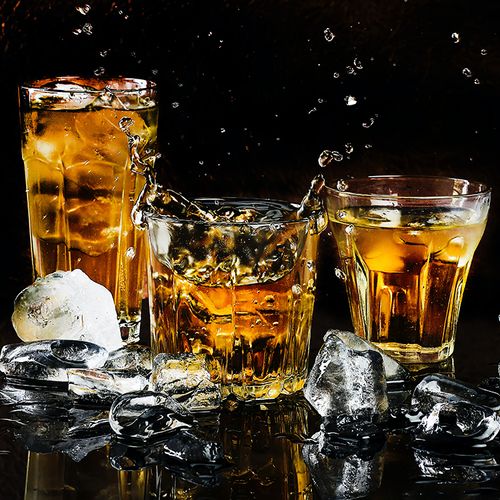Pancreatitis is a condition that most people associate with heavy drinking. But the causes are more widespread. Nearly two-thirds of the pancreatitis cases in the US may be caused by using certain prescription medications, including antibiotics, blood pressure drugs and antidepressants...or by having other conditions, especially gallstones...high triglycerides (a type of blood fat)...infection (such as mumps, herpes or food poisoning)...or autoimmune disease (such as lupus or Sjögren's syndrome). Trauma that damages the pancreas also can lead to pancreatitis.
Why this is important: Pancreatitis is not only painful but also associated with an increased risk for pancreatic cancer. Even if you don't have pancreatitis now, you still want to do everything you can to avoid the condition. Fortunately, if you do develop pancreatitis, the simple steps described in this article will help prevent attacks...
What Is Pancreatitis?
Pancreatitis is inflammation of the pancreas, a gland that plays a crucial role in the digestive process. Located behind the stomach, the pancreas secretes enzymes that combine with bile, produced in the liver, to digest food. The pancreas also releases hormones that help regulate glucose derived from food.
The Danger Of Inflammation
When the pancreas gets inflamed, digestive enzymes that normally travel from the pancreas to the small intestine get trapped. These enzymes, which are potent enough to digest food in the stomach, start "digesting the pancreas itself.
Result: Tissue damage and intense pain. With treatment, attacks due to acute pancreatitis usually subside within about one week. However, about 20% of patients who suffer acute pancreatitis go on to develop chronic pancreatitis, in which lingering inflammation may cause extensive damage and scarring.
Red Flags
Most patients with acute pancreatitis experience sharp pains in the upper-left part of the abdomen, and the pain may extend all the way to the back. The pain, which usually is accompanied by nausea and/or vomiting, may be mild initially but almost always gets more severe over a period of hours.
With chronic pancreatitis, flare-ups can be mild. But you'll probably lose weight, get occasional indigestion and have pale or clay-colored stools—all due to impaired digestion from a reduced supply of pancreatic enzymes.
Getting The Right Care
The pain of acute pancreatitis is very intense, So you will probably need to be hospitalized during an attack. Your doctor will give you medications for pain and probably administer IV fluids to keep you hydrated. Because the pain worsens after eating, people often stop eating and drinking during a pancreatitis attack.
Your doctor will then focus on what's causing the pancreatitis. For example, you may need surgery to remove gallstones or the gallbladder. Gallstones can cause reflux of bile into the pancreas, producing inflammation. Other treatments might include antibiotics that don't damage the pancreas to treat infection... or treating an alcohol addiction.
The conditions that cause pancreatitis are easily diagnosed with blood tests, stool tests to check for proper digestion/absorption of nutrients and/or imaging tests, such as ultrasound or a CT or MRI scan, to detect pancreatic inflammation, gallstones and blockages.
The Next Step
Doctors routinely review medications in people who have been diagnosed with acute pancreatitis. In some cases, discontinuing a "problem" medication (see box) will eliminate the risk for future flare-ups. Lifestyle changes and other self-care measures can help you reduce discomfort and prevent future attacks. Steps to follow…
- Use the right painkiller. Ibuprofen (Motrin) and aspirin are among the best choices. Do not take acetaminophen (Tylenol). People with pancreatitis are at greater risk for liver damage, which can occur in anyone who takes acetaminophen.
- Don't drink. You'll want to avoid alcohol if you've been diagnosed with pancreatitis. It can trigger flare-ups even if the initial inflammation wasn't caused by alcohol.
- Limit dietary fat. It's harder for the body to digest fat than the carbohydrates and protein in foods such as legumes, fresh vegetables and whole grains. In addition to fast food and most desserts, foods that are relatively high in fat include meats, eggs and whole-fat dairy products.
- Eat frequent, small meals. Large meals stress the pancreas. I advise patients with pancreatitis to eat six or eight times a day instead of the traditional three daily meals.
- Try supplemental enzymes. They seem to ease symptoms in some patients with acute or chronic pancreatitis. Products such as Nature's Life Pancreatin or Pancreatic Enzyme Formula haven't been proven to help, but they're worth a try if you're having trouble with digestion and/ or abdominal pain.
- Get a lipid test. For reasons that aren't dear, some pancreatitis cases are caused by very high triglycerides (above 1,000 mg/dL in a blood test).
Drugs That Can Harm Your Pancreas
The following are among the frequently prescribed drugs that may trigger pancreatitis..."
- Antibiotics such as ciprofloxacin (Cipro). azithromycin (Zmax) and demeclocycline (Declomycin).
- Antidepressants such as escitalopram (Lexapro) and bupropion (Wellbutrin).
- Blood pressure drugs such as enalapril (Vasotec), amlodipine (Norvasc) and metolazone (Zaroxolyn).
- Cholesterol drugs such as atorvastatin (Lipitor) and gemfibrozil (Lopid). .Heartburn drugs such as omeprazole (Prilosec) and cimetidine (Tagamet).
To check other drugs, go to the FDA Website, www.fda.gov/drugs.
*Do not discontinue any drug without consulting your doctor.
If you test high, you can lower triglycerides with exercise, weight loss, fish-oil supplements and a diet that's low in saturated fat. Medications, including niacin or a fibrate drug, such as gemfibrozil (Lopid), also may be needed if your triglycerides are this high.
